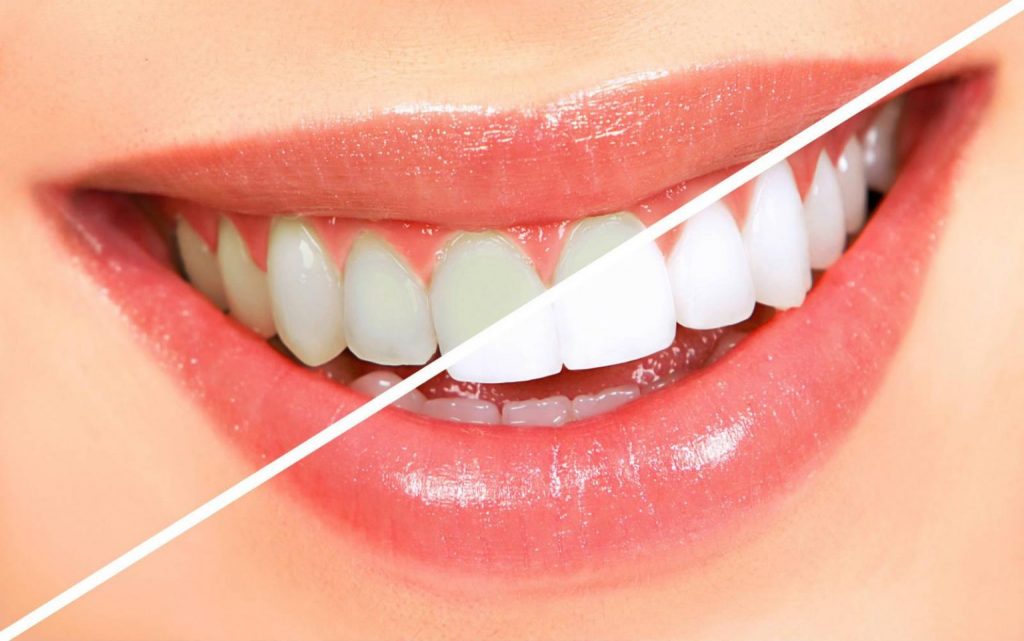Teeth whitening is process of removing the colored, organic and inorganic substances formed with porous enamel on the surface of the teeth with tooth whitening gels and other special equipments.
Teeth shape and color disorders may result in psychological disturbances. Thanks to the development of aesthetic and restorative materials in dentistry, many color, shape and position disturbances shall be easily solved.

Why does the tooth lose its whiteness?
- Structural disorders
- Some antibiotics
- Eating and drinking habits
- The amount of fluoride in drinking water
- Smoking
- Tea
- Coffee
ADVANTAGES OF TEETH WHITENING
- Whiter and brighter smile
- Prevents bacteria
- Self Confidence
- Prevents tooth decay
- Enhances your appearance
- Minimizes the look of wrinkles
- Great smiles are linked to health, confidence, and beauty
- Fit in Better with Society
- Brings Good First Impressions
PROCESS
There are two kinds of coloration in the teeth:
- Inner colouration
- Coloration
Whitening is applied in two ways:
In the actual whitening process, the dentist apply a gel made of 15% to 35% hydrogen peroxide to your front teeth. Hydrogen peroxide can penetrate the porous outer layer of your teeth and break apart stain compounds using a chemical reaction called as oxidation. Depending on the whitening system ,the application of the whitening gel may be followed by applying a high-powered light that speeds up the whitening process.
Most systems involve multiple applications of the gel throughout the whitening session. The dentist will rinse off the gel and reapply a fresh coat as many times as necessary about 40 minutes. When it is completed, the whitening procedure can achieve four to six shades of whitening after only one session.
SIDE EFFECTS OF DENTAL WHITENING
All whitening gels cause a little sensitivity. This sensitivity could react to cold-hot beverages or air. This is a normal and expected side effect. If the sensitivity does not exceed 24-48 hours, we recommend you to stop using the whitener. In case of sensitivity, your dentist will apply the fluoride and the toothpaste or creams. To reduce sensitivity, toothpaste containing potassium nitrate are also approppriate to use. Teeth whitening can last for a year without any change if you do not smoke. Smoking or consuming too much coffee shorten the eminent effects of whitening and extinguish the exposure time considerably.
